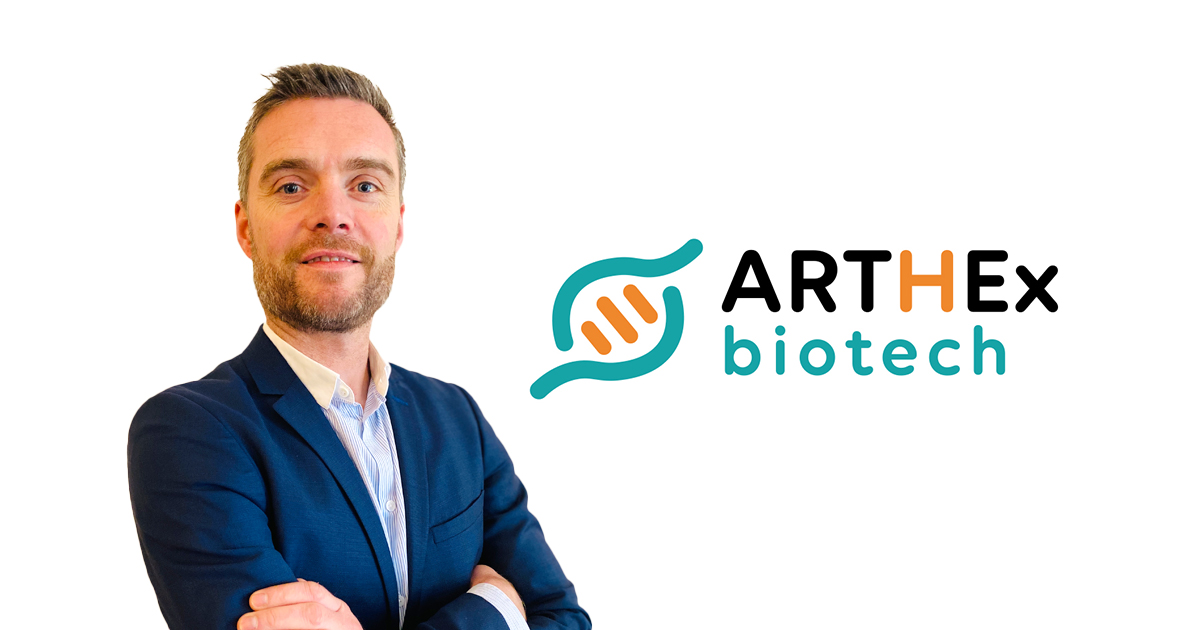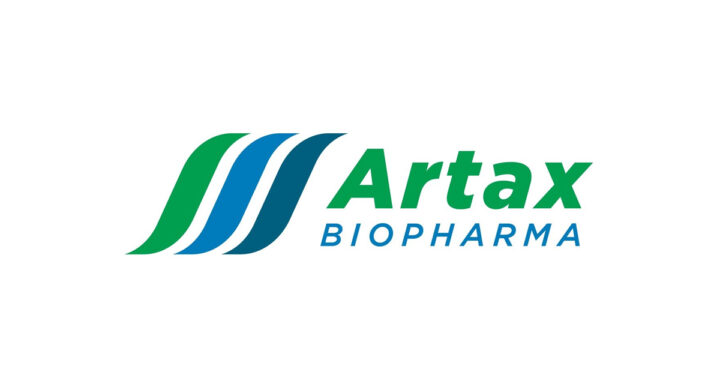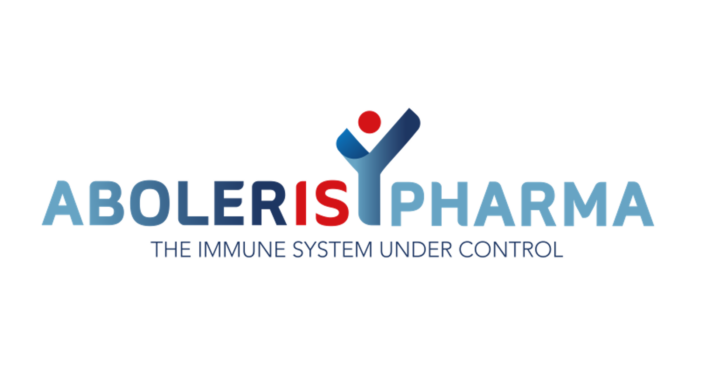ARTHEx Biotech is entering a new phase in its development of breakthrough treatments for genetically-driven disorders. It’s set to begin the first clinical trials for one of its microRNA modulators as a therapeutic approach for the degenerative muscular disease myotonic dystrophy type 1.[1] Yet according to Dr. Frédéric Legros, the company’s CEO and Executive Chairman, ARTHEx couldn’t have come this far — or hope to eventually reach those who need the innovative treatment — on its own.
A veteran of the biotech industry with both a Ph.D. in molecular biology and a master’s in business, Legros spent eight years heading up business development at the French vaccine company Valneva SE before serving as COO at Dynacure, a company he co-founded in 2016.
“My skill set is corporate development, business development, and company creation,” he says. “That’s my wheelhouse and the area where I really enjoy working.”
Legros joined ARTHEx in the fall of 2022, drawn by its team and its innovative approach to developing therapies — which he cites as a key element differentiating it from its competitors. Dynacure had been exploring the same modality, and Legros already had a friendly professional relationship with those at the company.
“I’d been in touch with the ARTHEx team for several years,” he explains. “We’d helped each other out, discussed ideas, and so forth.”
A discovery engine to identify and develop anti-microRNAs
Founded in 2019, ARTHEx Biotech is a spin-off from the University of Valencia in Spain and is based at the university’s science park. The company identifies the microRNAs responsible for expressing the gene proteins leading to specific genetic diseases and develops anti-microRNA (or antimiR) to modulate them.
ARTHEx’s lead compound ATX-01, for example, is an antimiR that blocks the effect of a microRNA regulating the expression of a protein that causes myotonic dystrophy type 1 – a neuromuscular disorder that affects 100,000 to 150,000 people around the world. It’s an exciting potential treatment for a severely unmet medical need.
“You have rare diseases where you get only 5,000 patients in the world, but this one, we’re talking about more than 100,000 patients,” says Legros. “We can genetically modify, in each cell of the body where it’s needed, the expression of the protein in order to correct this disease.”
“The objective now is to bring this asset to the clinic,” says Dr. Frédéric Legros, CEO and Executive Chairman of ARTHEx Biotech.
ARTHEx spent over three years developing ATX-01 – proving the molecule worked in cellular models, testing in animals, adapting for product manufacturing, compiling toxicology reports for agencies like the FDA and EMA, and so on. It was an immense achievement, but it also brought on new challenges.
“The objective now is to bring this asset to clinic,” says Legros. “Are we targeting the right tissue? We have to prove that in the clinic. Then the question is: can we achieve a significant enough reduction to see an effect?”
There will also need to be trials demonstrating ATX-01’s efficacy and dosage. And then there are the other antimiRs ARTHEx is developing: ATX-02 and ATX-03.
‘We need to think about the next steps,” Legros says, “in order to continue development and build our company.”
Synergy is vital for biotech success
In May of 2023, ARTHEx Biotech closed its Series B funding at €42 million with Sound Bioventures among the investors.
According to Legros, he and his team identified the firm as one with a history of funding similar companies at the same stage. “So we approached Sound Bioventures, presented the company, presented the case of investment,” he says. “And they were interested.”
The funding will be used for a phase I-IIa study of ATX-01 in both the United States and Europe that will run for about 12 months. It’s a serious endeavor that will bring even more challenges, but Legros knows that Sound Bioventures is among those ARTHEx can count on for help.
“There’s financial support but also support with strategy consulting and connecting with others, leveraging as much as we can of their experience,” he explains.
Developing a novel therapy and bringing it to market isn’t easy. So, as Legros explains, partnerships of cooperation are an intrinsic part of the biotech industry. Startups consult one another and trade advice, outside services run testing and manufacturing, and investors offer guidance and connections to help find solutions.
“You have to collaborate all the time because you cannot get all the expertise in one company,” he says. “You cannot develop a molecule alone.”
—
Discover more about the companies in the portfolio of Sound Bioventures.



